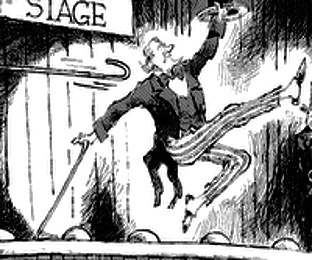Duties of Executor is an example of one of the many excellent publications that the Canadian bar Dial- A Lawyer library has for free public access.
I have reprinted this article from the said library as it is an excellent summary of the daunting task faced by many executors.
The Dial-A-Law library is prepared by lawyers and gives practical information on many areas of law in British Columbia. Script 178 gives information only, not legal advice. If you have a legal problem or need legal advice, you should speak to a lawyer. For the name of a lawyer to consult, call the Lawyer Referral Service at 604.687.3221 in the lower mainland or 1.800.663.1919 elsewhere in British Columbia.
This script discusses your duties as an executor under a will and what you have to do to probate an estate.
What does it mean to probate an estate?
Probate is the process of getting the court to rule that a will is legally valid. With some exceptions, the estate consists of any land, house, money, investments, personal items and other assets that the deceased owned. The person who died and made the will is called the “testator”.
What is an executor, and what does the executor do?
The executor is named in a will, in general, the executor gathers up the estate assets, pays the deceased’s debts, and divides what remains of the deceased’s estate among the beneficiaries.
How do you confirm that you were named as the executor?
You need to get the original version of the will to check this. If it’s not at the deceased testator’s home, the will may be in a safety deposit box, at the office of the lawyer who drafted the will, or it may be found by a search with the Vital Statistics Agency.
To look in the safety deposit box, phone the bank and make an appointment. Take the key, a death certificate and your own identification. If the will is there and names you as executor, the bank will let you take the will. You and a bank employee will then list the contents of the safety deposit box. You need to keep a copy of that list.
The other thing you can do is search for a wills notice at the Vital Statistics Agency. The testator or the testator’s lawyer may have registered a wills notice with Vital Statistics. This notice tells where the testator planned to keep the original will. If a wills notice was registered, you’ll be able to locate and obtain the original version of the will and confirm that you were named as the executor. For the Vital Statistics Agency office closest to you, call 250.952.2681 or check the Vital Statistics website at www.vs.gov.bc.ca.
Decide if you want to be the executor
If you haven’t yet dealt with any of the estate assets, you cannot be made to act as the executor. Acting as an executor can be very challenging, and you should only take on this responsibility knowing that the task will be time-consuming and stressful. Once you begin the process of dealing with the estate assets, you’re legally bound to complete the job, and you can only be relieved of your responsibility by a court order.
Consider hiring a lawyer
If you decide to act as the executor, consider whether to hire a lawyer to do the paperwork and advise you of your obligations. If you do, the estate pays the lawyer’s fees. Ask the lawyer how the legal fees will be calculated, whether as a percentage of the estate or on an hourly basis. But because unexpected matters often arise in estates, it may not be possible to get an exact estimate of the fees. It’s a good idea to hire a lawyer for any estate involving the distribution of assets through a will, where a grant of probate is required. For most estates, it’s also a good idea to also hire an accountant to help with the several tax returns that need to be filed, as proper filing of returns and payment of taxes is one of the executor’s responsibilities.
Your first decision as executor may be about funeral arrangements
The funeral is your responsibility, although you’ll want to consider the wishes of the deceased person and their relatives. The funeral parlor will ordinarily order you copies of the death certificate. You may take the funeral bills to the bank where the deceased kept an account. If there’s enough money in the account, the bank will give you a cheque from that account to pay the expenses.
You must also confirm that the will is the deceased’s last will
You can confirm this by checking with the Vital Statistics Agency at the office closest to you. Most lawyers send a wills notice to Vital Statistics for every will they prepare. Vital Statistics will then send you a Certificate of Wills Search. This tells you if there’s a record of the will and where the will is kept. You need this certificate when you apply to the court for probate, if you can’t find the original will, the search results may help you locate it.
Cancel charge cards and protect the estate
You should cancel ail the deceased person’s charge accounts and subscriptions. Also ensure that the estate is protected. Make sure valuables are safe and that sufficient insurance is in place. You should immediately change the locks on the apartment or house, and put any valuable things into storage. As for insurance, most insurance policies are cancelled automatically if a house is vacant for more than 30 days, so ask the insurance agent about a “vacancy permit.”
All potential beneficiaries must be notified
The Supreme Court Civil Rules and the new Wilis, Estates and Succession Act (WESA) require that all beneficiaries (as well as certain family members who would be heirs if there was no will, or who are eligible to apply to the court to change the will) must be given a written notice, plus a copy of the will. This is generally done by the estate’s lawyer.
The next step is to prepare and submit the necessary probate documents
The probate documents are submitted to court to get probate. Usually, you must get probate of the will to handle the deceased’s estate. You’ll also have to pay the probate fees as assessed by the court registry. The deceased’s bank will usually allow you to take these funds out of the deceased’s account.
Be aware that you don’t always have to apply for probate
It depends on the type of assets in the estate. Certain assets can be passed down without requiring probate. Land owned in joint tenancy with another person doesn’t require probate. If the deceased person owned land or a house in joint tenancy with another person, you only have to file an application in the Land Titles Office along with the death certificate. This will register the land in the name of the surviving joint tenant.
Also, probate isn’t required for joint bank accounts or vehicles owned jointly. Again, the death certificate is usually sufficient to transfer these to the surviving joint owner.
In addition, RRSPs and insurance policies, which typically name a beneficiary to receive the proceeds in case of the person’s death, aren’t considered part of the estate, and therefore don’t require probate. You should give the death certificate to any insurance companies and RRSP administrators that the deceased person had plans with.
They’ll want the death certificate before paying money to a beneficiary.
What about stocks and bonds?
If the estate includes securities, such as stocks and bonds, you may have to apply for probate in order to transfer them. You should check with the financial institution or transfer agent involved for each security in the estate because they’ll have different requirements.
Also deal with any pensions the deceased had
If the deceased paid into the Canada Pension Plan, immediately apply to your local CPP office to tell them of the death and obtain any death, survivor or orphan benefits. Most funeral directors can provide you with information and forms regarding CPP death benefits. You should also check with the deceased person’s employer about any benefits available there. If the deceased was receiving an old age security pension or other pensions, you also need to tell those pension offices of the death. Note that any CPP or old age security cheques for the month after the month in which the person died must be returned uncashed.
Certain income tax returns must be filed, and income tax may have to be paid
You need to file tax returns for any years for which the deceased didn’t file a return. If the estate made any income after the date of death (such as rental income or interest on.bank accounts), then tax returns will have to be filed for the estate for each year after death, until the estate is wound up or paid out. The estate must pay taxes and obtain a Clearance Certificate from Revenue Canada before the estate can be distributed to the beneficiaries. This certificate confirms that all income taxes or fees of the estate are paid. This is an important step because the tax department can potentially impose taxes that you don’t know about.
Now you can pay the estate’s debts
Depending on the circumstances, you may want to advertise for possible creditors so you can make sure all legitimate debts are paid. This is to protect yourself against creditor claims that arise after you distribute the estate. As the executor, you could be personally liable if you don’t pay the deceased’s debts, includig any taxes owed, before you distribute the estate. You should talk to a lawyer about this.
Be aware of the WiUs Variation Act
The Wills Variation Act allows any child or spouse of the deceased to apply to the court to vary or change the terms of the will. This Act has a six-month deadline (starting from the granting of probate). You should wait for six months to distribute the assets or obtain releases from each potential claimant. Remember that you are responsible if you distribute the assets to the wrong people and could be sued.
Get tax clearance
It’s wise to obtain a tax clearance certificate from the Canada Revenue Agency. This certificate confirms that all income taxes or fees of the estate are paid. This is an important step because the tax department can potentially impose taxes that you don’t know about.
Finally, you’re ready to distribute the estate to the beneficiaries
But before distributing the assets as directed in the will, you should submit a full accounting of the estate’s financial activities and obtain a release from each beneficiary. Your accounting will usually include a claim for reimbursement of expenses you’ve paid yourself. You’ll have to decide if you also want to claim a fee for acting as executor. This fee can be up to 5% of the estate and is taxable income. If you want to claim a fee, the amount you claim should be included in the accounting that you send to the beneficiaries.
Where can you find more information?
• See the booklet “Being an Executor” produced by the People’s Law School, available online through Clicklaw. -at www.clicklaw.bc.ca/resource/1022.
• Also see the BC Ministry of Justice’s website on wills and estates at www.ag.gov.bc.ca/courts/other/wills estates.htm. [updated April 2014]
Dial-A-Law© is a library of legal information that is available by:
• phone, as recorded scripts, and
• audio and text, on the CBA BC Branch website.
To access Dial-A-Law, call 604.687.4680 in the lower mainland or 1.800.565.5297 elsewhere in BC. Dial-A-Law is available online at www.dialalaw.org.
The Dial-A-Law library is prepared by lawyers and gives practical information on many areas of law in British Columbia. Dial-A-Law is funded by the Law Foundation of British Columbia and sponsored by the Canadian Bar Association, British Columbia Branch.










